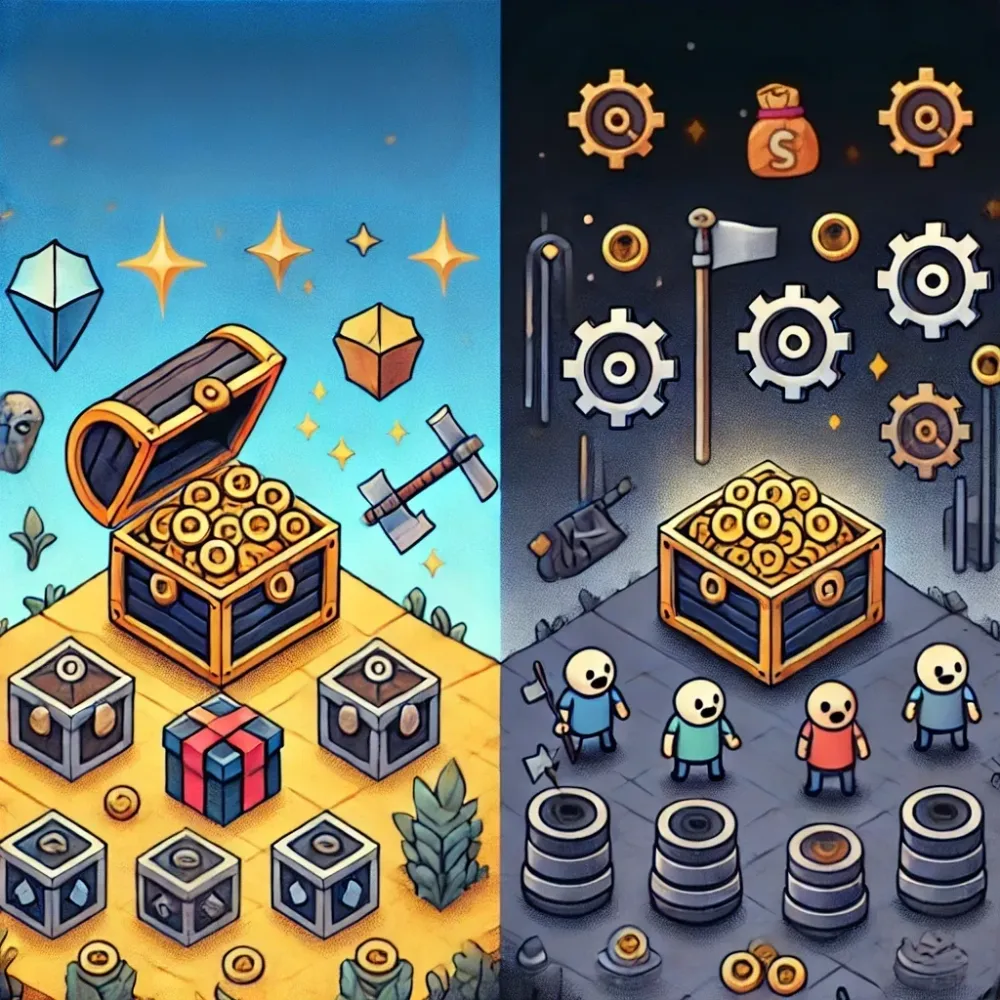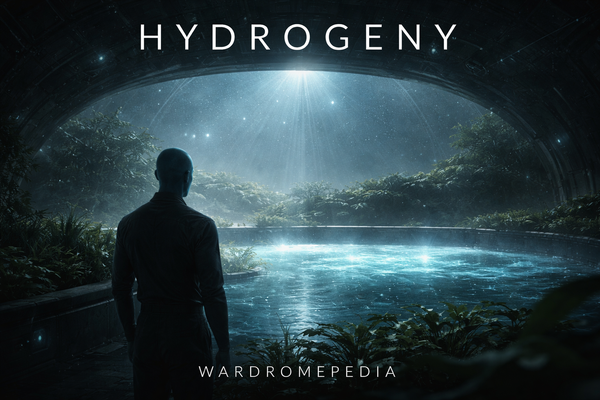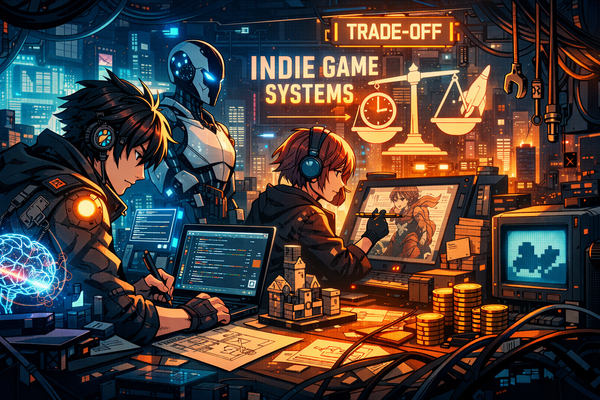Why meaningful rewards are better than grinding in indie game development
The balance between player progression and engagement is critical to a game's success. One of the ongoing debates is the use of grinding—the repetitive tasks players perform to achieve in-game rewards—versus meaningful rewards that truly enrich the player’s experience. While grinding can be an effective tool for extending gameplay, meaningful rewards provide a far more engaging, satisfying, and sustainable approach to game design. Here’s why prioritizing meaningful rewards is better than relying on grinding.
The nature of grinding
Grinding has been a staple of game design, especially in role-playing games (RPGs) and massively multiplayer online (MMO) games, where players repeat tasks like fighting the same enemies, collecting resources, or completing missions to progress. The core appeal of grinding lies in the sense of accomplishment that comes from achieving long-term goals. However, when the grind becomes too tedious or repetitive without adequate rewards, it can lead to player burnout, disengagement, and frustration(Z League)(Lark).
One common issue with grind-heavy games is that they rely on time investment over engagement, turning what should be an exciting journey into a monotonous slog. When players feel that their efforts don’t translate into meaningful progress or valuable rewards, the sense of accomplishment is diminished.
The power of meaningfulrRewards
Meaningful rewards, in contrast, provide a richer and more satisfying experience for players. These rewards go beyond simple leveling up or acquiring loot—they offer tangible benefits that make players feel genuinely rewarded for their time and effort. Whether it’s unlocking a new narrative arc, acquiring a rare item that enhances gameplay, or reaching a new area, these rewards make the player feel that their progress has real significance(Z League).
- Emotional connection and player motivation: When rewards have meaningful significance—such as unlocking new lore, character development, or story progression—players feel emotionally invested. Games like Hades and Celeste reward players not just with power-ups but with deeper connections to the game world and its characters. This emotional engagement can be a far more compelling motivator than simply grinding for stats(Lark).
- Engaging variety: Meaningful rewards encourage developers to diversify gameplay. Rather than simply completing repetitive tasks, players are given a variety of challenges that are directly tied to their experience of the game. This variety keeps players engaged, preventing the fatigue that often accompanies grinding(Z League).
- Replayability and satisfaction: Games that prioritize meaningful rewards tend to have better long-term replayability. Players are more likely to return to a game when they know their time will be rewarded with valuable experiences. Meaningful rewards ensure that each playthrough offers something new, whether it’s uncovering hidden lore, mastering difficult mechanics, or earning exclusive rewards(Lark).
- Increased player retention: Developers who focus on meaningful rewards often see greater player retention. When players feel rewarded in a way that matters to them, they’re more likely to stay engaged for longer periods of time and less likely to abandon the game out of frustration. This engagement helps build long-term communities around the game and creates a loyal player base(Z League).
The dangers of Over-Reliance on grinding
While grind can offer a certain level of satisfaction for some players, it can also be a dangerous design trap. Over-reliance on grind risks alienating players who may not have the time or patience to invest hours in repetitive activities. Additionally, excessive grind can create pay-to-win environments, where players feel pressured to spend money to bypass grind mechanics—this is a major concern for player satisfaction and game fairness(Lark).
Grinding should be carefully balanced with meaningful rewards. Developers need to ensure that grinding doesn’t become the core experience but rather serves as a complementary part of a more rewarding system.
Striking the right balance
For indie developers, the challenge is to create a system that balances the satisfaction of grind with the enrichment of meaningful rewards. To do this, developers can:
- Provide clear goals and progression: Set clear milestones and objectives so that players always understand what they are working toward. Goals should feel achievable, and each step should bring tangible benefits(Z League).
- Offer varied and engaging challenges: Avoid monotonous tasks by designing a variety of challenges that cater to different player preferences, such as combat, exploration, or puzzle-solving. This diversity keeps gameplay fresh and engaging(Lark).
- Reward players proportionally: Ensure that the effort required for any grind is appropriately rewarded with meaningful in-game benefits, such as rare items, special abilities, or narrative advancements(Z League).
The power of meaningful rewards
In conclusion, while grind has its place in gaming, meaningful rewards provide a far more enriching and engaging experience. For indie developers, focusing on meaningful rewards over grinding can lead to greater player satisfaction, deeper emotional connections, and stronger long-term engagement. Players want to feel that their time is respected and that their efforts yield real, valuable progress. By prioritizing meaningful rewards, indie developers can craft games that are not only fun but also deeply rewarding, both in the short and long term.




